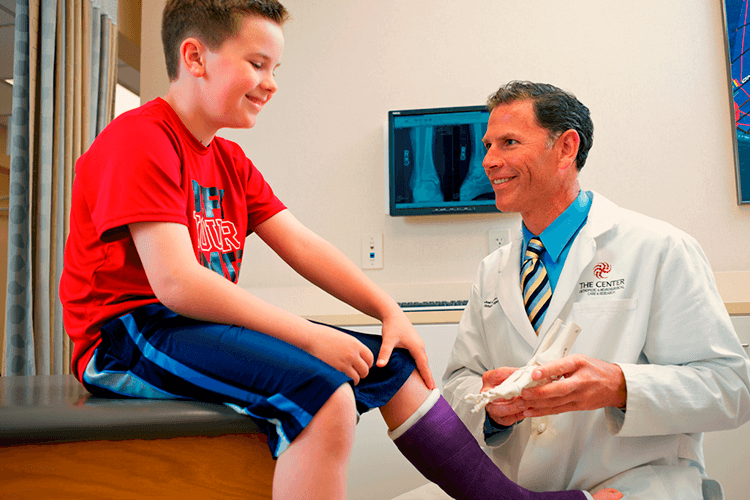
A pediatric orthopedic surgeon is an experienced doctor who has specialized training to evaluate and treat musculoskeletal problems in children. Musculoskeletal means any issue related to the bones, muscles, joints, or supporting tissues. The specialized training that pediatric orthopedists have is extremely important because the bones of children are still growing from birth to the teenage years.
What kind of training do pediatric orthopedists have?
All orthopedic surgeons must complete medical school and then participate in a residency program, which is usually five years of on-the-job training. Pediatric orthopedic surgeons choose to make caring for children the focus of their medical practice, which requires advanced knowledge to understand the medical and surgical needs of growing children. After residency, most pediatric orthopedic surgeons complete one or two years of subspecialty training specific to pediatric orthopedics. Altogether, pediatric orthopedists have about 15 years of education before they practice on their own!
What kind of problems do pediatric orthopedists treat?
Pediatric orthopedists diagnose, treat, and manage children’s musculoskeletal problems. A child’s musculoskeletal problems are different from those of an adult since their bodies are still growing. A child’s response to injury, infection, or deformity can be different than what is often seen in adults.
Some of the problems pediatric orthopedists treat include:
- Limb and spine deformities
- Gait abnormalities
- Broken bones
- Bone or joint infections or tumors
Where can I find a pediatric orthopedist?
Pediatric orthopedic surgeons practice in a variety of medical institutions including hospitals, medical centers, specialty clinics, and more. Your pediatrician or primary care doctor will likely have suggestions or recommendations for pediatric orthopedists in your area. You can also visit the Pediatric Orthopaedic Society of North America (POSNA) website to view a directory of providers based on location.
Why does my child need to see a pediatric orthopedist?
Children are not just small adults. Their growing bones pose different challenges than those of adults, and children often cannot explain what is bothering them or answer medical questions. Pediatric orthopedic surgeons know exactly how to examine and treat children and communicate with their families.
If my pediatrician suggests that my child see a pediatric orthopedist, what questions should I be prepared to ask?
- Does this condition require a doctor with specialty training?
- Is it safe for my child to be active and do things like run, play, and jump?
- Are there any activities my child should avoid?
- Is this condition treatable, or will it cause long-term problems for my child?
For more information on pediatric orthopedists, please visit the Pediatric Orthopaedic Society of North America.





